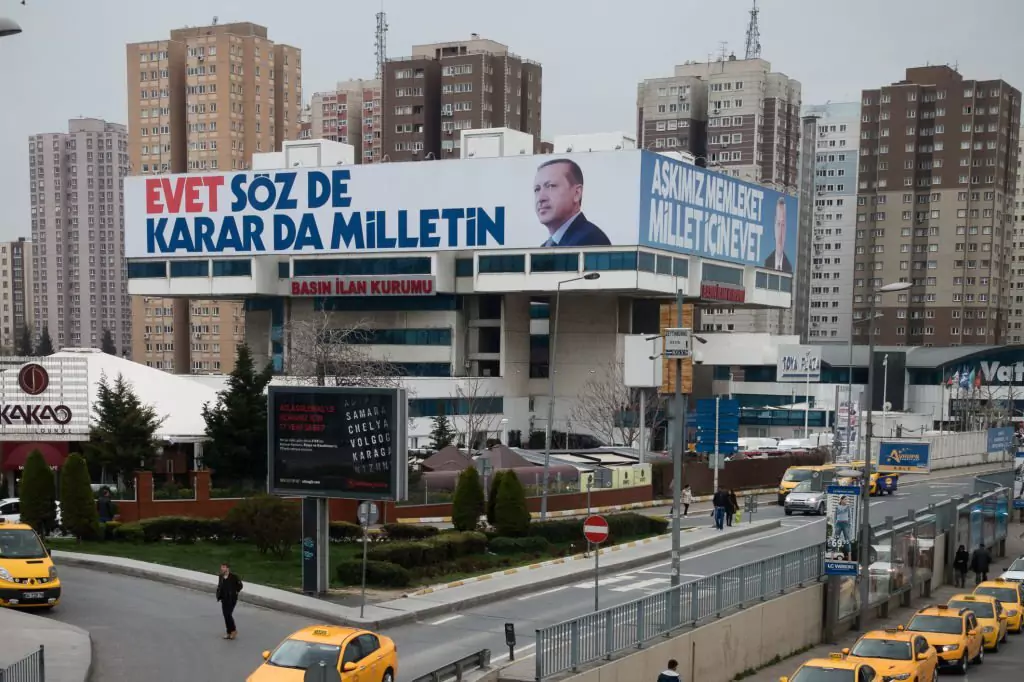Introduction
Recep Tayyip Erdogan is a polarizing figure in Turkish politics, known for his authoritarian tendencies and his efforts to expand Turkey’s influence on the world stage. He rose to power as the leader of the Justice and Development Party (AKP) in 2002 and has since dominated Turkish politics, serving as prime minister from 2003 to 2014 and then as president. Erdogan’s leadership has been marked by economic growth and social reforms, but also by controversies and criticisms over his restrictions on free speech and his crackdown on dissent. In this article, we will explore Erdogan’s rise to power, his policies and initiatives, and the challenges facing Turkey under his leadership.

Early Life and Political Beginnings of Recep Tayyip Erdogan
Recep Tayyip Erdogan was born in Istanbul in 1954 and grew up in a working-class neighborhood. He attended a religious school and later studied management at Marmara University. In the 1970s, Erdogan became involved in Islamist politics and activism, joining the National Salvation Party (MSP) and later the Welfare Party (RP). He was elected mayor of Istanbul in 1994 as a member of the RP, where he gained a reputation for his populist policies and his efforts to improve infrastructure and services in the city.
Erdogan’s Role in Founding the AKP Party
In 2001, Erdogan was banned from politics and imprisoned for four months for reciting a poem that was deemed to be inciting religious hatred. After his release, he helped found the AKP party, which won a landslide victory in the 2002 elections. Erdogan became prime minister and quickly set about implementing economic reforms and social policies aimed at improving the lives of ordinary Turks. The AKP’s platform was based on a combination of conservative Islamic values and free-market economics.
The AKP’s Rise to Power in Turkey
The AKP’s electoral successes continued over the next decade, with Erdogan winning re-election as prime minister three times. The party’s growing influence in Turkish politics was due in part to its ability to appeal to a wide range of voters, including religious conservatives, secularists, and nationalists. Erdogan’s leadership style was also a factor, as he projected an image of strength and decisiveness that resonated with many Turks.
Erdogan’s First Term as Prime Minister
During his first term as prime minister, Erdogan implemented a number of policies aimed at modernizing Turkey’s economy and society. He introduced tax reforms, privatized state-owned enterprises, and encouraged foreign investment. He also launched social programs aimed at reducing poverty and improving healthcare and education. These policies helped fuel economic growth and improve living standards for many Turks.
Controversies and Criticisms Surrounding Erdogan’s Leadership
Despite his successes, Erdogan has faced criticism from many quarters over his authoritarian tendencies and restrictions on free speech. His government has been accused of suppressing dissent through arrests of journalists, academics, and opposition politicians. The Gezi Park protests in 2013 were a major challenge to Erdogan’s rule, with thousands taking to the streets to protest against what they saw as his increasingly authoritarian style.
Erdogan’s Re-Election as President and Constitutional Changes
In 2014, Erdogan was elected president after serving three terms as prime minister. He immediately set about pushing for constitutional changes that would expand the powers of the presidency. These changes were approved by referendum in 2017, giving Erdogan greater control over the judiciary, the military, and other key institutions.
Erdogan’s Foreign Policy and Relations with the West
Erdogan has pursued an ambitious foreign policy aimed at expanding Turkey’s influence on the world stage. He has sought closer ties with Russia and China while also maintaining strong relations with NATO allies such as Germany and France. However, tensions with the US have grown over issues such as Turkey’s purchase of Russian missile systems and its military operations against Kurdish forces in Syria.
The 2016 Coup Attempt and Erdogan’s Response
In July 2016, a faction within the Turkish military attempted to overthrow Erdogan’s government in a coup d’etat. The coup failed after mass protests by supporters of Erdogan, but it led to a crackdown on perceived enemies of the state. Thousands of people were arrested or dismissed from their jobs on suspicion of involvement in the coup or links to terrorist organizations.
Erdogan’s Recent Actions and Policies in Turkey
In recent years, Erdogan has faced growing criticism over his crackdown on dissent and opposition. His government has been accused of suppressing free speech through arrests of journalists, academics, and opposition politicians. The AKP’s economic policies have also come under scrutiny, with some critics arguing that they have led to rising inequality and increased debt.
Future Prospects for Erdogan and the AKP Party
The challenges facing Erdogan and the AKP party are significant, including rising inflation, high unemployment rates, growing public discontent over corruption allegations, and increasing tensions with Western countries such as the US. However, there is also potential for further political and economic reforms that could help address these issues.
Conclusion
Recep Tayyip Erdogan has had a profound impact on Turkish politics since he rose to power as leader of the AKP party in 2002. His policies have led to economic growth and social reforms but have also been marked by controversies over his restrictions on free speech and crackdowns on dissent. As Turkey faces new challenges both domestically and internationally, it remains to be seen what role Erdogan will play in shaping its future direction.
